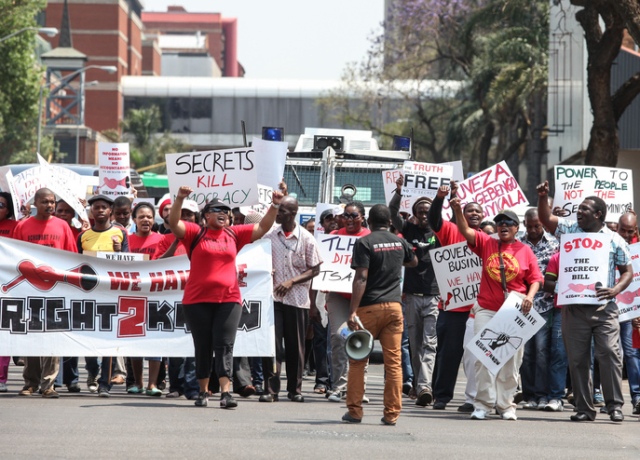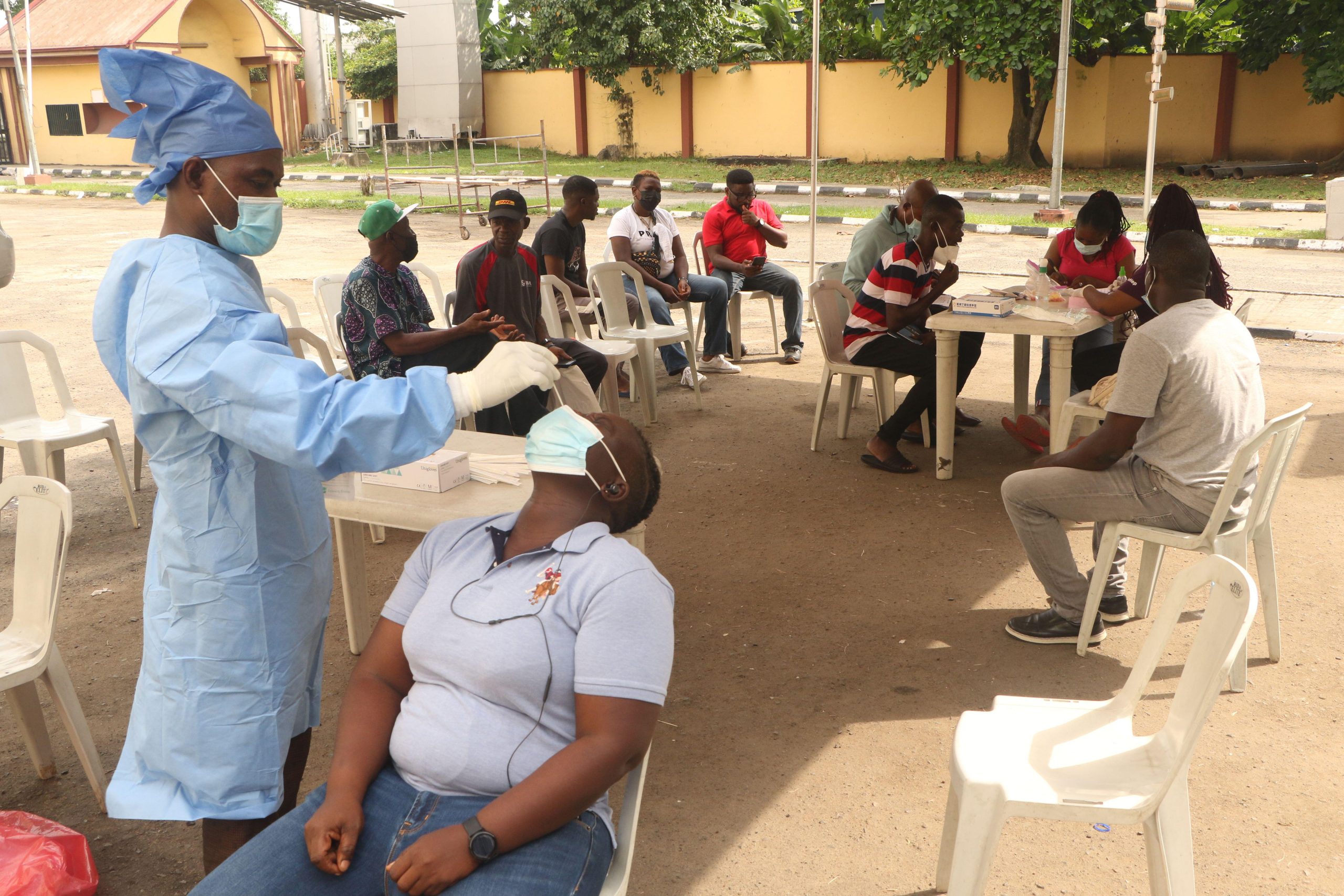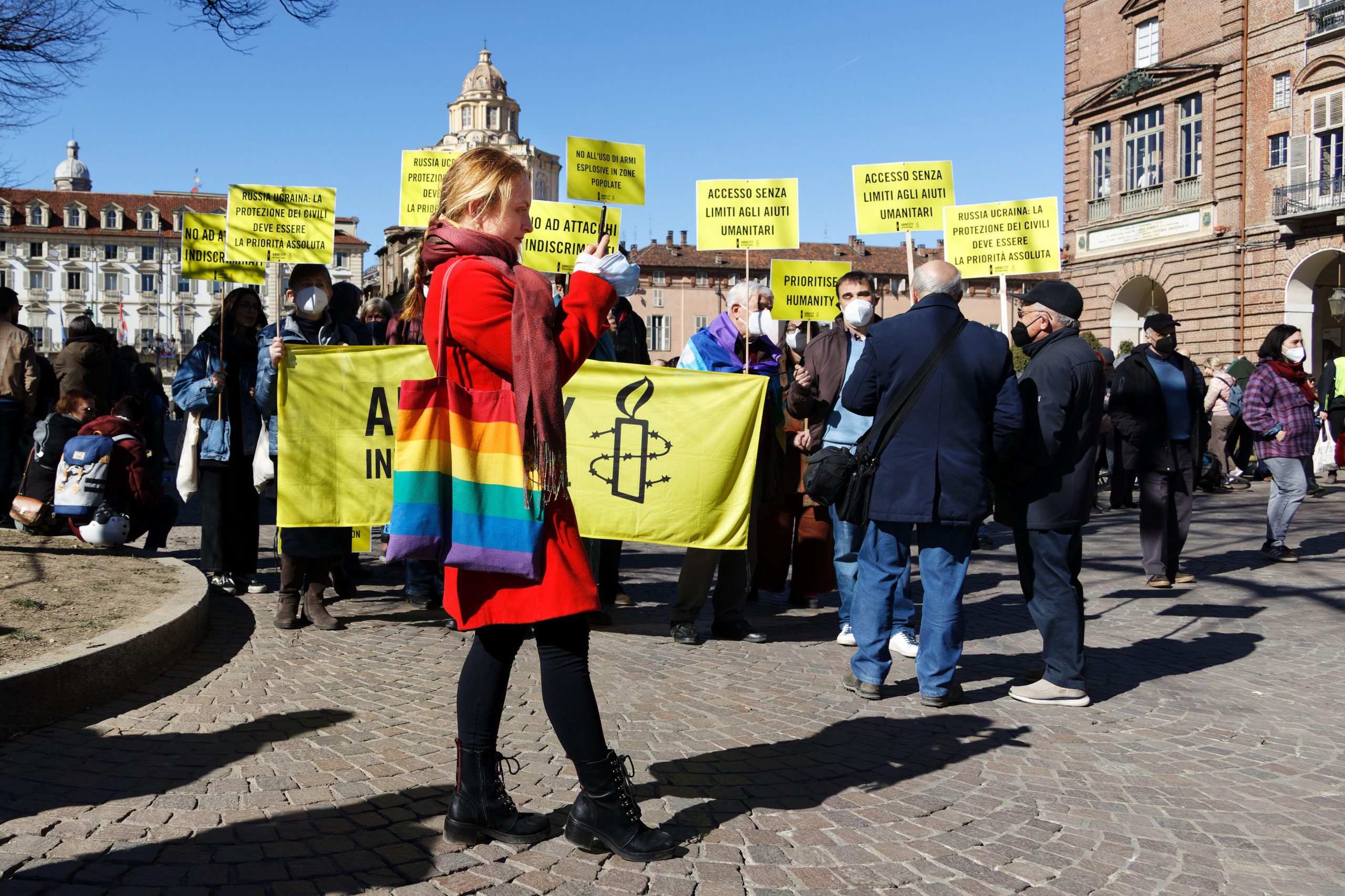South Africa’s Right2Know Campaign (R2K) is “Camping out for Openness” outside parliament in Cape Town this week as deliberations over the draconian Protection of State Information Bill draw to a close.
The National Council of Provinces, the second house of parliament, is due to adopt the bill by the end of November. The bill is ostensibly aimed at instituting a long-overdue system to regulate access to government documents.
However, despite persistent appeals from, among others, luminaries such as Nobel Laureate Nadine Gordimer, the Secrecy Bill’s system of classification and declassification has not been couched in the country’s constitutional commitment to an open democracy and the free flow of information.
Instead it opens the door to the over-classification of state information while instituting harsh punishments for the possession of classified information, undermining basic citizenship rights.
Pressure from civil society, led by the R2K Campaign, produced limited concessions this year. One of the most pertinent demands was to include a public interest defence clause to ameliorate the anti-democratic effects of the bill. The ruling African National Congress (ANC) eventually conceded by allowing a clause enabling a public interest defence, but only if the disclosure revealed criminal activity. This has been criticised as an unreasonably high threshold.

Right2Know march in Pretoria, South Africa, September 2012. Jordi Matas | Demotix
The ANC this month backtracked on two other key concessions, as pressure from state security minister Siyabonga Cwele on ANC parliamentarians seemingly paid off:
- The Secrecy Bill at first took precedence over the Promotion of Access of Information Act (PAIA). PAIA allows citizens to request information from government agencies. The ANC then agreed to an amendment that would give PAIA precedence. This decision was again overturned after pressure from Cwele. Activists argue that allowing the Secrecy Bill to trump PAIA is unconstitutional, as PAIA is prescribed by the constitution and has to remain the supreme law in access to information matters.
- A five-year sentence for disclosing classified information has been reintroduced after the ANC agreed to have it removed. This will actively discourage whistleblowers in the civil service from coming forward with information revealing corruption.
Cwele’s predecessor, Ronnie Kasrils, this week addressed the R2K camp outside parliament, distancing himself from what he deemed the “devious” and “toxic” bill. While he was minister, he withdrew the 2008 version of the bill after a similar outcry about its lack of constitutionality.
According to R2K, the other remaining problems with the Secrecy Bill include:
- It criminalises citizens instead of holding to account civil servants who are responsible for keeping secrets.
- A whistleblower, journalist or activist disclosing classified information with the purpose of revealing corruption or other criminal activity can still be prosecuted under the “espionage” and related offences clauses to avoid them invoking the limited public interest defence.
- Persons in possession of classified state information face draconian jail terms of up to 25 years.
- The bill’s procedure to apply for the declassification of information conflicts with PAIA, while the newly created Classification Review Panel is not sufficiently independent: “The simple possession of classified information appears to be illegal even pending a request for declassification and access.”
- Someone can be prosecuted for “espionage”, “receiving state information unlawfully” (to benefit a foreign state), and “hostile activity” even without proof that the accused intended to benefit a foreign state or hostile group or prejudice national security — only that the accused knew this would be a “direct or indirect” result.
- Information classified under apartheid law and policies that may be counter to the constitution remain classified, pending a review for which no time limit is set.
Parliament’s engagement with the bill, which started in July 2010, has been characterised by Orwellian “doublethink”, as exemplified in Cwele’s declaration that “protect(ing) sensitive information … is the oil that lubricates our democracy and we have no intention — not today, not ever — to undermine the freedom we struggled and sacrificed for all these years”.
R2K has vowed to continue pressuring parliamentarians to replace the Secrecy Bill with a law “that genuinely reflects a just balance between the public’s right to know and [the] government’s need to protect limited state information”.
Christi van der Westhuizen is Index on Censorship’s new South Africa correspondent




